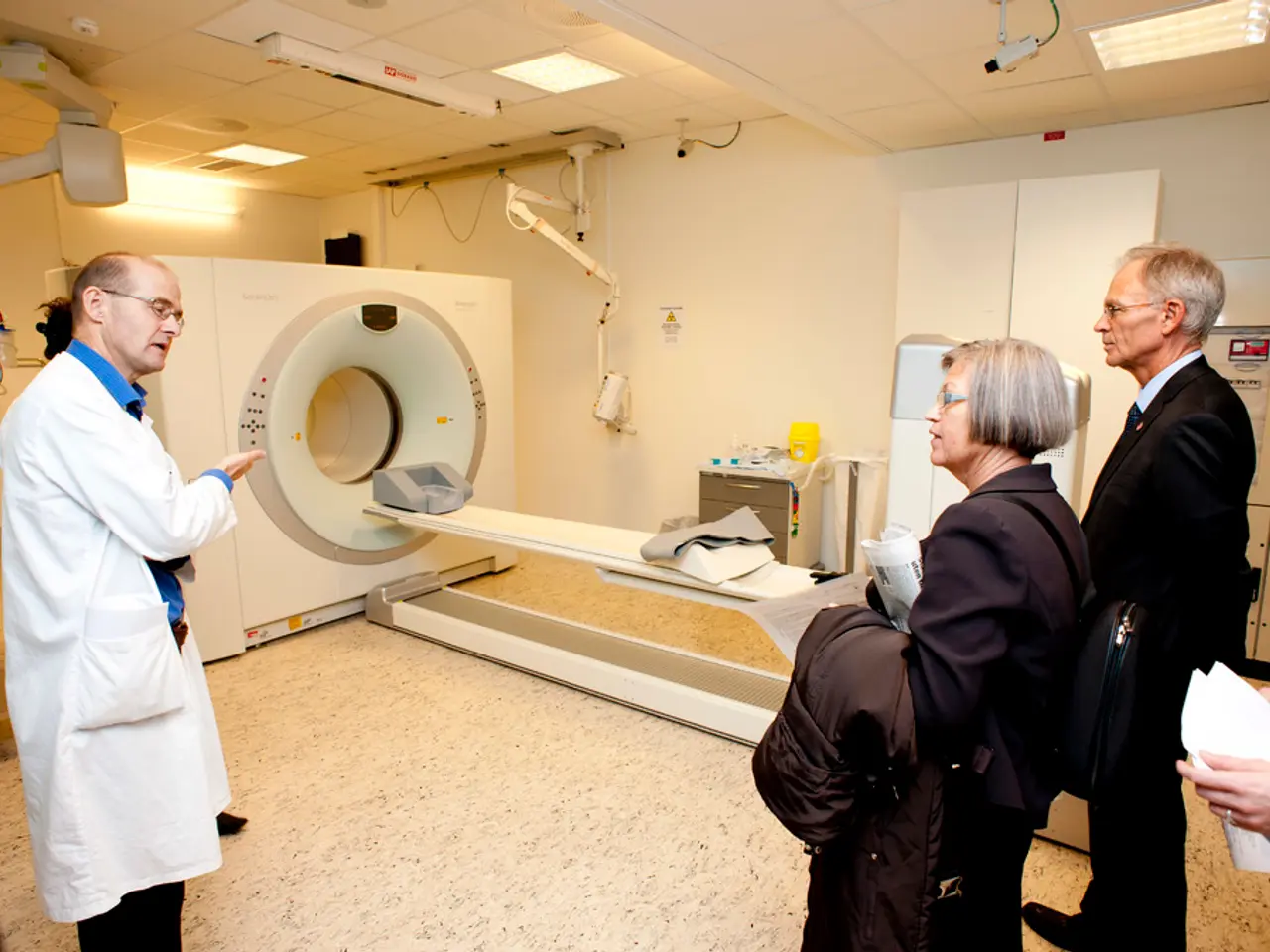Enhancing healthcare services with technological advancements
Improving Patient Satisfaction with Digital Healthcare in the NHS
The National Health Service (NHS) is looking to enhance patient satisfaction by bolstering its digital capabilities while addressing concerns related to data privacy, security, and patient comfort in discussing sensitive health issues.
Empowering Patients with Digital Access and Control
The NHS aims to expand its NHS App to serve as a comprehensive "digital front door," providing patients with non-urgent care advice, the ability to choose providers, book tests, hold consultations, manage prescriptions, and medicines directly. This move empowers patients with greater control and convenience, tailoring care experiences and reducing administrative burden.
Patients will also benefit from a single, secure, and authoritative account of their health data, enabling coordinated, personalized, and predictive care. This reassures patients that their information is managed responsibly.
Strengthening Data Privacy and Security Measures
The NHS is committed to ensuring that all digital services operate on robust, secure platforms like the NHS Federated Data Platform, allowing secure access to patient data with minimized paperwork and strict controls supporting privacy.
Transparency in communication regarding how patient data is used, stored, and protected is key to building trust. Emphasizing accountability and safety improvements enabled through technology, such as AI systems that help flag patient safety concerns without compromising individual privacy, is also crucial.
Incorporating Patient Voices and Advocacy Mechanisms
A dedicated patient experience directorate within the Department of Health and Social Care (DHSC) will be established to improve complaints handling, patient advocacy, and engagement. This ensures that concerns related to digital services, privacy, and sensitive communications are heard and addressed.
Local Healthwatch, integrated care boards, and patient participation groups will collaborate to involve patients in the design and planning of services, tailoring digital offerings to patient comfort levels, especially for sensitive topics.
Fostering Comfort in Discussing Sensitive Health Issues
Digital consultations, such as video consultations via the NHS App, may provide patients with increased privacy and reduced embarrassment or discomfort associated with face-to-face discussions of sensitive health matters.
Healthcare staff will be trained in digital empathy and confidentiality best practices to reassure patients that their digital interactions remain secure and comfortable, fostering openness and trust.
Addressing Variations and Accessibility
Consideration must be given to the variations in technology between hospitals to prevent an inconsistent experience for patients. It is also essential to ensure that healthcare technology is accessible to all potential users, including the elderly, and that concerns about ability to use technology effectively are addressed.
The Path Ahead for Digital Healthcare in the NHS
The NHS has pledged to improve its digital capabilities and speed up the progress of digitizing healthcare communication with patients. This move aims to boost patient satisfaction and boost employee efficiencies.
Currently, nearly 60% of patients are not satisfied with the NHS' current digital processes. Developers should ensure technical and administrative safeguards are in place to secure patient data while progressing towards becoming 'paperless'.
Embracing the Digital Revolution in Healthcare
Technology has the potential to revolutionize healthcare professional engagement with patients before and after treatment. As many other sectors are making more use of technology, patients and consumers have come to expect a better digital offering.
Healthcare organizations should demonstrate efforts to prevent data theft and ensure that technology is utilized to store prescriptions for quicker access, manage hospital appointments, and allow patients to take greater control of their own healthcare, particularly in terms of the administration and management of their treatment.
However, the NHS is currently lagging in its 5-year plan to boost care through technology. The adoption of a digitally integrated model that offers seamless, patient-centric access and control of health services, grounded in strong privacy and security frameworks and enhanced by active patient involvement, can help the NHS catch up and exceed expectations.
9 in 10 people would like to utilize modern technology, such as a mobile app, if it improves the NHS service and makes their healthcare experience better. This underscores the need for the NHS to prioritize digital advancements to meet the growing demands and expectations of its patients.
References: 1. NHS Digital. (2019). NHS App: A digital front door for patients. Retrieved from https://digital.nhs.uk/services/nhs-app 2. Department of Health and Social Care. (2019). Patient Experience Strategy. Retrieved from https://www.gov.uk/government/publications/patient-experience-strategy 3. NHS Digital. (2019). NHS Federated Data Platform. Retrieved from https://digital.nhs.uk/services/nhs-federated-data-platform 4. NHSX. (2019). Digital Strategy for Health and Social Care. Retrieved from https://www.gov.uk/government/publications/digital-strategy-for-health-and-social-care
- Science plays a vital role in strengthening data privacy and security measures by implementing advanced technologies and AI systems in digital health services.
- The NHS aims to create a synergy between health-and-wellness, technology, and patient satisfaction by deploying digital solutions that prioritize patient comfort in discussing sensitive health issues, ensuring data security, and empowering patients with personalized and coordinated care.




